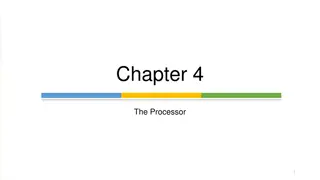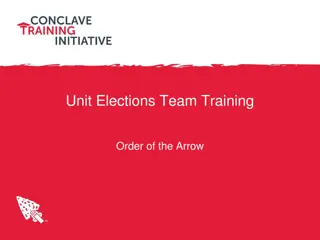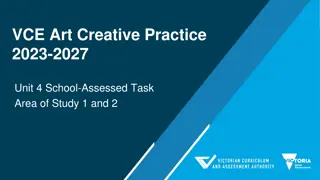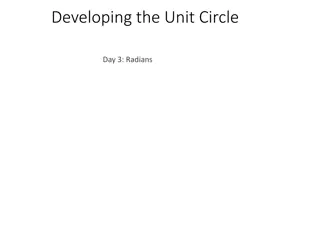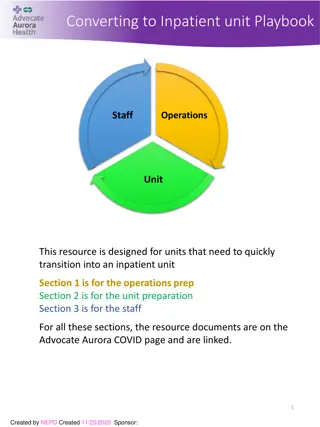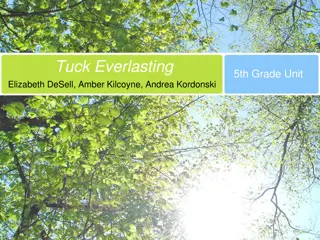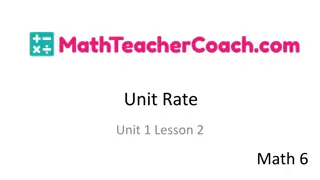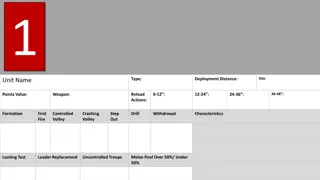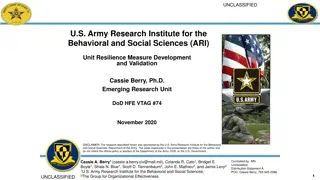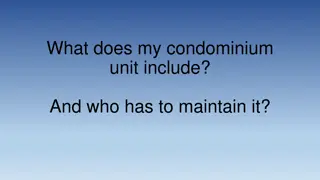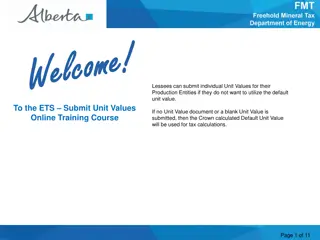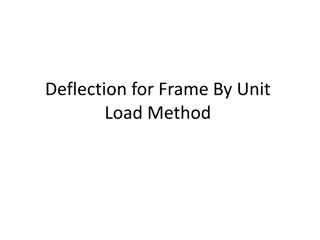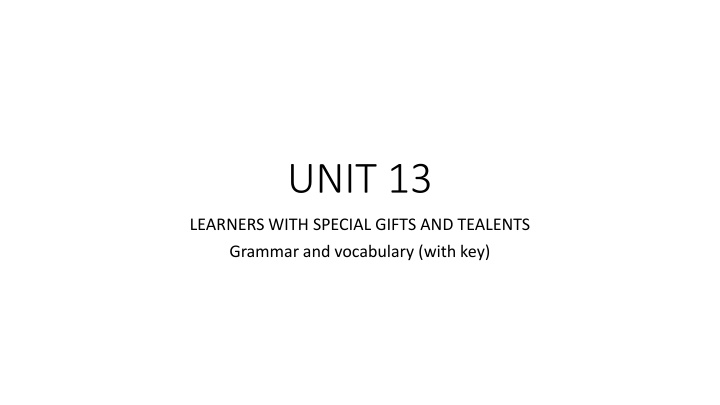
Enhancing Learners' Special Gifts and Talents Through Grammar and Vocabulary Study
Explore vocabulary related to learners with special gifts and talents, practice defining expressions, and delve into the use of adjectives and adverbs in English grammar through examples and exercises provided in this educational content. Improve your understanding of analytic, synthetic, and practical giftedness while learning about adjective order and comparative and superlative adjectives.
Download Presentation

Please find below an Image/Link to download the presentation.
The content on the website is provided AS IS for your information and personal use only. It may not be sold, licensed, or shared on other websites without obtaining consent from the author. If you encounter any issues during the download, it is possible that the publisher has removed the file from their server.
You are allowed to download the files provided on this website for personal or commercial use, subject to the condition that they are used lawfully. All files are the property of their respective owners.
The content on the website is provided AS IS for your information and personal use only. It may not be sold, licensed, or shared on other websites without obtaining consent from the author.
E N D
Presentation Transcript
UNIT 13 LEARNERS WITH SPECIAL GIFTS AND TEALENTS Grammar and vocabulary (with key)
VOCABULARY Read the text on pages 80 and 81. Refer to page 83 (Vocabulary) for any new words or phrases. Do exercise IV on page 81.
Exercise IV page 81 Exercise IV page 81 (Key) (Key) LOOK BACK AT THE TEXT. FIND DEFINITIONS OF THE FOLLOWING LOOK BACK AT THE TEXT. FIND DEFINITIONS OF THE FOLLOWING EXPRESSIONS EXPRESSIONS a) analytic giftedness being able to take a problem apart; a skill typically measured by conventional intelligence tests b) synthetic giftedness involves intuition and creativity; skills typically associated with high achievements in arts and sciences c) practical giftedness involves applying analytic and synthetic abilities in solving everyday problems d) enrichment additional materials and exercises provided to students without placing them in a higher grade e) acceleration placing the students in higher grades than their age peers
GRAMMAR ADJECTIVES AND ADVERBS (pages 83 and 84)
ADJECTIVES Adjectives are words which describe nouns (things and people). Adjectives in English usually go in front of the word they describe: We visited an old house. There are many nouns in English which are used as adjectives: a diamond ring, a library book, strawberry jam
ADJECTIVE ORDER When we use more than one adjective, we usually put them in a certain order. We say: a strange old wooden chair (NOT a wooden old strange chair) We usually begin with adjectives which give an opinion or general impression: a dangerous old car, a valuable silver spoon
COMPARATIVE AND SUPERLATIVE ADJECTIVES ADJECTIVE COMPARATIVE SUPERLATIVE one syllable strong big two syllables, ending in -y tidy funny two/three/four syllables famous beautiful add -er stronger bigger drop -y and add -ier tidier funnier more... more famous more beautiful add -est the strongest the biggest drop -y and add -iest the tidiest the funniest the most the most famous the most beautiful A few adjectives have irregular comparative and superlative forms: good better bad worse far farther When things are equal we use as .as: Classical music is as popular as rock music with our customers. the best the worst the farthest
ADJECTIVES ENDING IN -ING AND -ED Some common adjectives are formed from verbs and have both -ing and -ed forms. We use the -ed form to describe our feelings: I m tired. (= a description of how I feel) We use the -ing form to describe the things which make us feel like this: This work is tiring. (= a description of the work)
ADJECTIVES ENDING IN -ING AND -ED Compare these sentences: It s a boring film. The visitors are bored. We had a relaxing holiday. The patient is completely relaxed. That was a very satisfying meal. The airline has many satisfied customers.
ADVERBS Adjectives (happy, beautiful) tell us about a noun. Adverbs (happily, beautifully) tell us about a verb, an adjective or another adverb. I feel happy. The children are playing happily. The weather is beautiful. She sings beautifully. Adverbs give us information about time (when?), place (where?), manner (how?) and frequency (how often?). Some adverbs are phrases: He s arriving on Tuesday, so we re meeting him at the station.
ADVERBS AND ADJECTIVES EASILY CONFUSED Some adjectives and adverbs have the same form: fast, hard, late, early, daily, weekly, monthly: Adjectives Adverbs He caught the fast train. He caught the early train. She s a hard worker. The bus is always late. My daily newspaper is 50p. He ran fast to catch the train. He always arrives early. She works hard. I arrived home late. I swim daily.
ADVERBS AND ADJECTIVES EASILY CONFUSED Hard and hardly are both adverbs but they have different meanings. Hardly means almost not : They hardly ever go on holiday. (= almost never) There was hardly anyone at the cinema. (= almost nobody) Late and lately are both adverbs but they have different meanings. Lately means recently : I haven t read any good books lately. The adverb for good is well: It was a good concert. The musicians played well.
EXERCISE VI page 82 (Key) Find the examples of comparative and superlative forms of adjectives in the text 1. more successful (comparative form of successful; 2nd paragraph, last sentence) 2. the worst (superlative form of bad; 4thparagraph, first sentence) 3. the most remarkable (superlative form of remarkable; 4th paragraph, last sentence) 4. higher (comparative form of high; last paragraph, last sentence)
EXERCISE VII page 82 (Key) Choose the correct adjective 1. 2. 3. 4. Traditional program may be bored/boring for gifted students. His test results were satisfied/satisfying. Teachers were fascinated/fascinating with his achievement. Since she was a little girl she has been very interested/interesting in arts. He was always the best in class, which was annoyed/annoying for other students. The parents were amazed/amazing by their daughter s achievements. Solving IQ tests can be tired/tiring for average students. 5. 6. 7.
EXERCISE VIII page 82 (Key) Choose the correct word, an adjective or an adverb 1. She is good/well at solving everyday problems. 2. His intuition is extraordinary/extraordinarily good. 3. Analytic giftedness is typical/typically measured by IQ tests. 4. Creativity is typical/typically of synthetic giftedness. 5. People with practical giftedness usually have successful/successfully careers. 6. Gifted people have unusual/unusually talents. 7. Average students must work hard/hardly to keep up with their gifted peers. 8. Gifted students accomplish remarkable/remarkably things.
EXTRA PRACTICE GRAMMAR - Please go to the En-Abilities learning platform at https://desarrollo.enabilities.prometeoinnovations.com/logi n/index.php - Go to English course A2 Unit 9 Exercises 9.6, 9.7, 9.8


